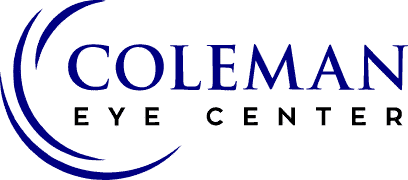January is Glaucoma Awareness Month: Protect Your Vision
Did you know that January is Glaucoma Awareness Month? This is the perfect time to learn more about glaucoma, a leading cause of blindness that affects millions of people worldwide. Glaucoma often has no noticeable symptoms until it’s too late, making it crucial to stay informed and proactive about eye health. At [Your Eye Center], we want to help you understand the importance of glaucoma awareness and how you can take steps to protect your vision.
What is Glaucoma?
Glaucoma is a group of eye diseases that cause damage to the optic nerve, often due to high intraocular pressure (IOP). The optic nerve is responsible for transmitting visual information from the eye to the brain, so damage to this nerve can lead to irreversible vision loss. There are several types of glaucoma, with the two most common being:
Primary Open-Angle Glaucoma (POAG): The most common form, typically developing slowly without noticeable symptoms until significant damage has occurred.
Angle-Closure Glaucoma: A rarer form where the drainage angle of the eye becomes blocked, causing a sudden increase in eye pressure, which requires immediate medical attention.
Why is Glaucoma So Dangerous?
Glaucoma is often referred to as the “silent thief of sight” because it usually progresses without noticeable symptoms. By the time vision loss is detected, significant damage may have already occurred. Early detection through routine eye exams is crucial to managing glaucoma and preventing further vision loss.
Who is at Risk?
While anyone can develop glaucoma, certain risk factors can increase your chances of developing the disease. These include:
Age: Individuals over 60 are at higher risk.
Family History: A family history of glaucoma increases the likelihood of developing the condition.
Ethnicity: African Americans, Hispanics, and Asians are more likely to develop glaucoma, often at an earlier age.
Other Medical Conditions: Conditions such as diabetes, high blood pressure, and heart disease may increase the risk.
How Can You Protect Your Vision?
The good news is that glaucoma can be managed, especially when detected early. Here are some ways you can protect your eyes and vision:
Schedule Regular Eye Exams: Comprehensive eye exams are the most effective way to detect glaucoma. Your eye doctor will measure your eye pressure and assess the health of your optic nerve.
Know Your Family History: If you have a family history of glaucoma, inform your eye doctor. This may lead to earlier screenings or additional tests.
Follow Treatment Plans: If diagnosed with glaucoma, it’s essential to follow your doctor’s treatment recommendations, which may include eye drops, medication, or even surgery in some cases.
Maintain a Healthy Lifestyle: Regular exercise, a balanced diet, and controlling health conditions like diabetes and hypertension can contribute to eye health.
The Role of Technology in Glaucoma Detection
Advancements in technology have made glaucoma detection more precise and effective. At [Your Eye Center], we utilize state-of-the-art diagnostic tools such as OCT (Optical Coherence Tomography) and advanced visual field tests to accurately assess eye health and detect early signs of glaucoma. These technologies help us catch the disease in its earliest stages, allowing us to take proactive steps to prevent vision loss.
Take Action This January
During Glaucoma Awareness Month, we encourage you to take action to safeguard your vision. Schedule an eye exam to get a comprehensive evaluation of your eye health, especially if you’re at risk. Early detection can make a world of difference in preventing long-term damage and preserving your sight.
If you’re due for an eye exam or have concerns about glaucoma, don’t wait – contact Coleman Eye Center today to book an appointment. Our dedicated team is here to provide the care and support you need to keep your eyes healthy.
Remember: Protecting your vision starts with being proactive. Don’t let glaucoma steal your sight.

